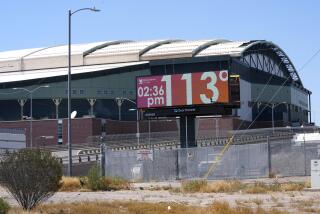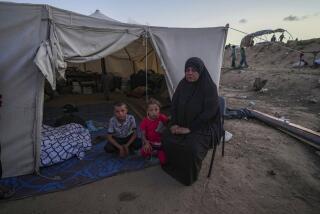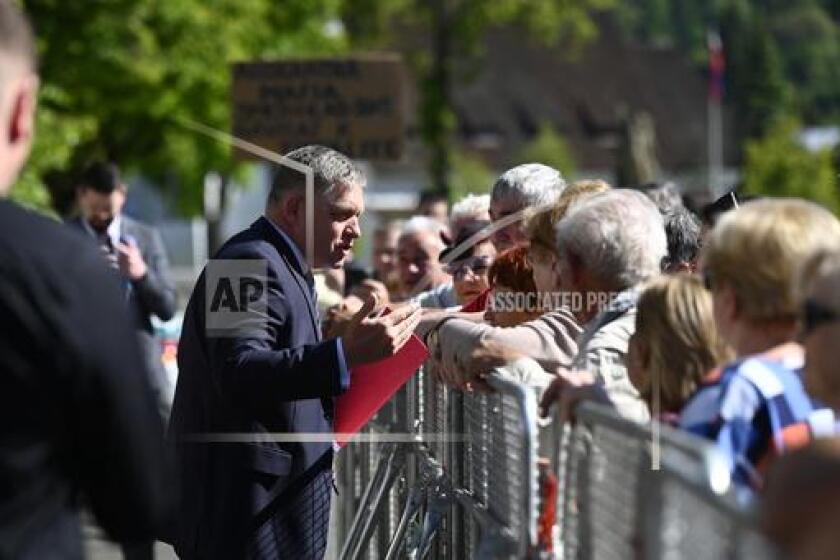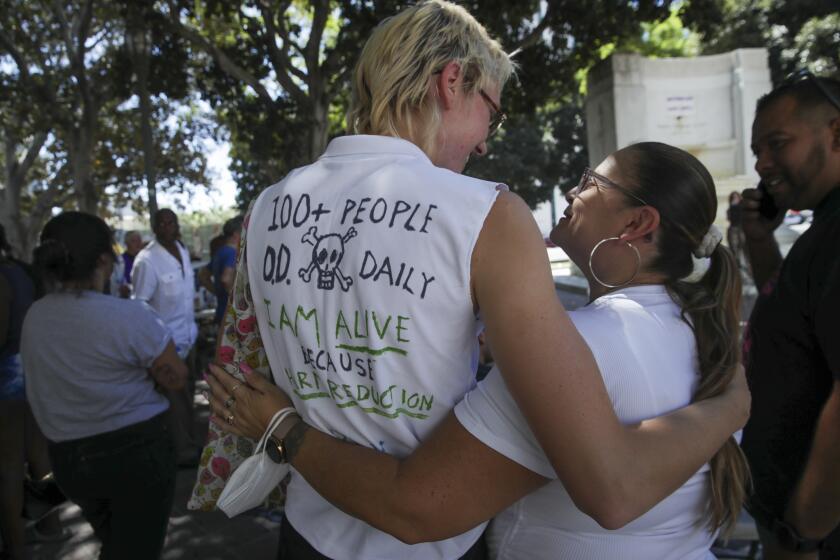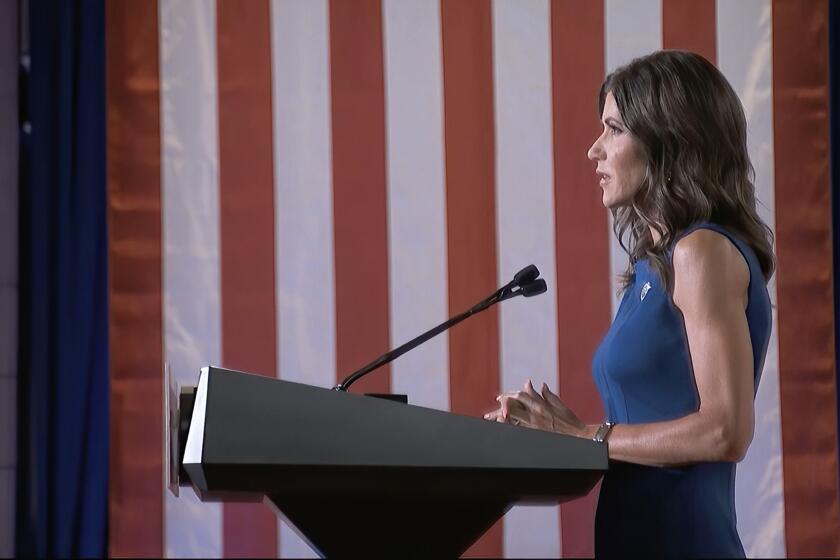Macedonians Smooth Over Political Crisis
Acting under intense international pressure aimed at averting the collapse of a multiethnic government here, key leaders agreed Tuesday to set aside a bitter dispute over a joint declaration signed by ethnic Albanian politicians and a top guerrilla.
With fighting between government troops and ethnic Albanian guerrillas raging about 15 miles from Skopje, the capital, and thousands of civilians fleeing disputed villages, European Union foreign policy chief Javier Solana successfully brokered the talks.
The governmental crisis was triggered last week when leaders of the two ethnic Albanian parties in the ruling coalition signed a joint declaration with a leader of the guerrillas fighting the Macedonian army. The document set out a platform for expanded rights for the nation’s ethnic Albanian minority and envisioned demobilization of the rebel force. However, it did not require the guerrillas to immediately stop fighting.
Critics angrily charged that by signing the statement, the politicians had given legitimacy to the rebels and their political leader, Ali Ahmeti. Top Macedonian Slavs in the government, including President Boris Trajkovski, demanded that the ethnic Albanian politicians repudiate the agreement but were turned down.
“Ahmeti has issued orders for the killing of over 20 policemen and soldiers of the Macedonian army, and none of us can negotiate in this situation,” Prime Minister Ljubco Georgievski said before Tuesday’s meeting with Solana. The EU official returned to Skopje for his second visit in two days to help negotiate the accord.
The guerrillas say they are fighting for ethnic Albanian rights in Macedonia, while Macedonian Slav leaders say the rebels want to split the country. By signing the joint declaration, the Albanian politicians seemed to be saying that they shared the guerrillas’ goals and differed only on the method of achieving them.
With the dispute threatening to bring down the government, Solana worked out a deal under which ethnic Albanian politicians Arben Xhaferi and Imer Imeri could distance themselves from but not renounce the agreement they signed.
After the meeting among party leaders and Solana, Trajkovski released a statement that leaders of the four parties in the governing coalition “all have agreed that the future of the Republic of Macedonia can only be decided by democratically elected representatives, working through a peaceful political process.”
“They insist that violent actions in pursuit of political aims are totally unacceptable,” the statement continued. It added that the document signed by the ethnic Albanian political leaders and the guerrilla leader “is no longer relevant.”
The politicians agreed to speed up legislative reform efforts aimed at addressing the ethnic Albanians’ grievances and to achieve “substantial progress” by June 15, the statement said.
Ethnic Albanians, who make up at least a fourth of Macedonia’s population, say they suffer from bias in politics, employment and education. The international community fears that their rebellion will destabilize the Balkans, which saw warfare for much of the 1990s.
Fighting between rebel and government forces continued Tuesday in the village of Matejce, which soldiers and police entered Monday but failed to fully control. An army spokesman said about 2,000 people fled homes in or near the village Tuesday. Four soldiers were injured by rebel mortar fire, authorities said.
Since the fighting in northern Macedonia began early this year, more than 20,000 people have fled from the contested areas to government-controlled parts of Macedonia or to neighboring Yugoslavia, according to estimates by aid agencies.
In recent days, many also have fled to rebel-held Lipkovo, near Matejce, where food and water are running low, according to reports from the village. Efforts will be made today to evacuate civilians with the help of international aid agencies, authorities said.
At a meeting in Budapest, Hungary, foreign ministers from North Atlantic Treaty Organization member countries agreed to “strongly condemn” attacks by ethnic Albanian militants in Macedonia. They also affirmed a “full commitment” to the stability and territorial integrity of the troubled Balkan state.
“There is no place at the negotiating table for those who prefer bullets to the ballot and use violence to achieve political purposes,” NATO Secretary-General George Robertson said.
But the foreign ministers also called on the democratically elected government of Macedonia to take “quick, concrete steps” to address the “legitimate concerns” of the nation’s ethnic Albanians.
More to Read
Start your day right
Sign up for Essential California for news, features and recommendations from the L.A. Times and beyond in your inbox six days a week.
You may occasionally receive promotional content from the Los Angeles Times.
